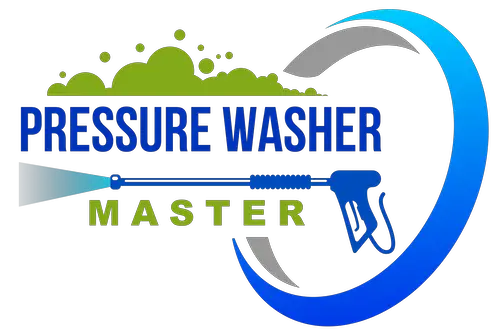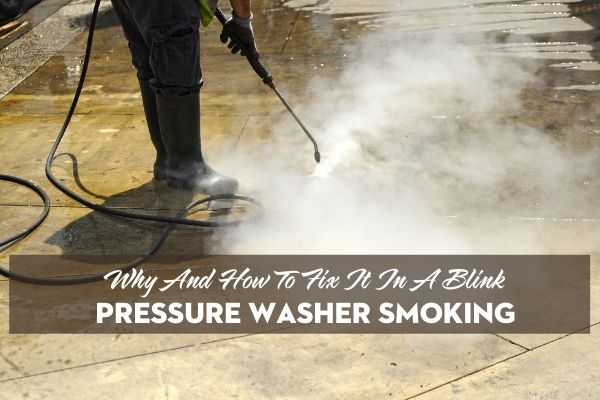A functioning pressure washer is a fantastic piece of machinery. It may not only turn those drab outdoor spaces into a lovely sight, but it can also eliminate mold and germs, giving your surroundings a clean and pleasant appearance.
Suppose your pressure washer develops a burning odor and greets you with a smoky appearance while operating. In that case, your pressure washer must be causing you problems by smoking unnecessarily.
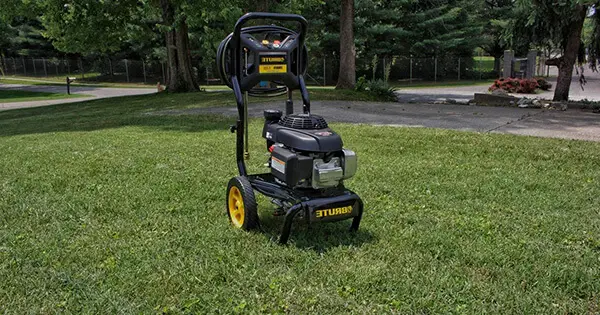
Do you want to know why your washer started smoking and how to solve it? The remainder of this post concentrates on the answers you’ll need to get things back on track.
Why Is Your Pressure Washer Smoking?
The Most Common Cause – Overheating
If you see or smell a pressure washer that started smoking, turn it off and disconnect it. The most prevalent issue is a burning wire that has become too hot. Most pressure washers are simple to disassemble and repair.
If you can locate the part that was burning or shorting out, a fast internet search for the part can have your power washer up and running again. On a hot day in the sun, be cautious of running it for too long. The motors can become overheated, resulting in another short or burned wire.
Incorrect Mixture Of Air And Oil
For a variety of reasons, gas-powered pressure washers can produce white or black smoke when turned on. One explanation is that smoke is produced when fuel is incorrectly combined with air or oil.
A pressure washer tune-up may be an excellent method to guarantee that it operates correctly. If you’re taking out a pressure washer that hasn’t been used in a while, or you’re not sure how it was stored, this could be necessary. A tune-up consists of replacing the oil and ignition system and adjusting the throttle and choke settings.
Other Possible Causes smoke
- The Incorrect Fuel: It’s possible that you’re using the wrong gasoline or that you unintentionally placed water in the tank. Drain and refill the gasoline tank with the proper fuel.
- Fuel Pressure Is Low: Low fuel pressure can cause smoke, especially in hot water pressure washers, where the burner requires more than 140 PSI to work correctly. Consult your user handbook for instructions on how to set the fuel pump pressure to the proper levels.
- Soot: Soot may have accumulated on the coils. Use a soot remover to clean them, or hire a local repair shop to do it for you.
- Incorrect Electrodes: The machine will not create the necessary spark to ignite the diesel fuel if the electrodes are not aligned properly. As a result, waste fuel will be sprayed into the burn chambers, perhaps resulting in smoke. Check the user manual for appropriate alignment criteria and, if necessary, replace the electrodes.
Why Does A Pressure Washer Overheat?
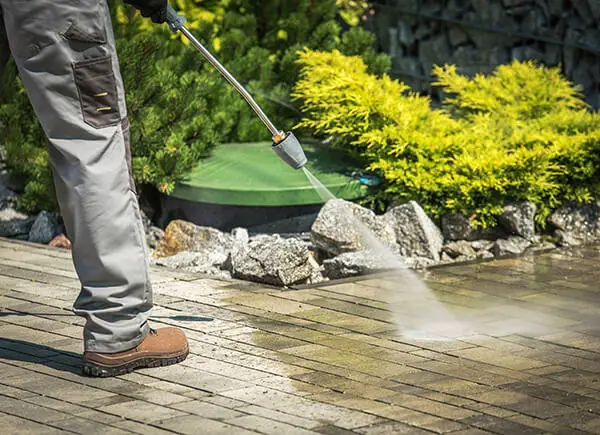
You run the danger of seriously damaging the components of your pressure washer every time it overheats. As a result, it’s advisable to avoid the most common causes of overheating, which you can see on the checklist below.
- Hot water: Using hot water in a pressure washer that only utilizes cold water is dangerous to the machine and can cause it to overheat.
- Problems with the Machine: You might end up with excessive heat build-up within the pressure washer if you don’t fix a mechanical fault that concerns the heating system.
- Inadequate Water: Always fill your pressure washer to the specified gallons per minute per the handbook. To receive more specific directions, look at the pump rating.
- Run Time: Continuously running your residential-grade pressure washer for more than five minutes will cause it to overheat, resulting in pump damage.
- Pressure: Excessive pressure with the fuel in pressure washers that run on gasoline will cause the internal temperature to increase. This is why, before you turn it on and fill it up, you should verify the manufacturer’s fuel pressure guidelines.
- Incorrect Use: It’s pretty simple to install the burner nozzle incorrectly or incorrectly place your unloader on your machine, causing the device to overheat.
- Thermostat: Your machine’s thermostat can malfunction, allowing it to get boiling.
How To Prevent Overheating With A Pressure Washer
The pressure washer will cool down if you take a break every 20 to 30 minutes. When the machine generates greater force, the engine often heats up. The pressure washer must also rest for a few minutes to avoid overheating.
The engine warms up fast when the user increases the PSI or water pressure. Within a 5 to 10-minute time span, the higher the pressure intensity generated by the machine, the more heat accumulates.
It is critical to put pressure washers in a shady location. The machine will heat up faster than you think when exposed to the sun’s heat.
This is especially true with gas pressure washers, as they use the engine to operate the machine instead of electric pressure washers, which solely use an electric motor.
Electric pressure washers may overheat, but they do so much less frequently than gas pressure washers. On the plus side, gas pressure washers are more powerful than electric pressure washers in creating PSI (Pressure or Force).
How To Maintain Your Pressure Washers Correctly
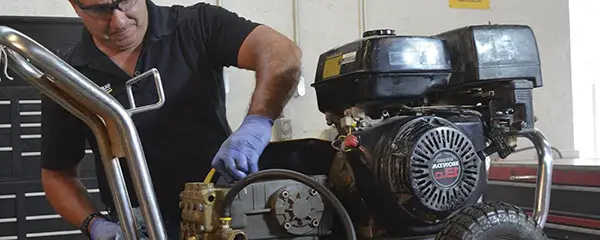
While knowing about these problems and how to solve them is great, you may avoid them by adequately maintaining your pressure washer. Here are some pointers on how to take care of your pressure washer.
- Tubes, nozzles, tanks, and hoses are all susceptible to clogging. Therefore, you should check for them frequently so that you can eliminate them before they do severe damage.
- Examine your pressure washer for damage regularly. Cuts, leaks, bulges, and other damage may be discovered. Anything that is damaged should be repaired or replaced.
- Turn off the pressure washer and the water supply after each usage to relieve the machine’s pressure. Next, unplug any electric equipment from the outlet. Finally, to release any residual pressure, run the pressure washer until the water stops running.
- Remove any leftover water by pulling the recoil handle six times on a gas machine. Turn the device on until the water leaves the pump for electric equipment. Then immediately switch off the machine.
- When you detect symptoms of wear and tear, especially in high-pressure hoses and spray-gun connections, o-rings should be changed.
- Make sure your pressure washer is in good working order. This entails cleaning the outside and checking for dirt in the vents, tanks, and hoses.
Conclusion
Make sure you’re getting the most out of your pressure washer in anything you do. As a result, anytime you detect a glitch or any other indicator of a malfunction, please troubleshoot it immediately. We hope that this post has provided you with enough information to tackle the issue of pressure washer smoking on your own. Best of luck!
Further Reading
